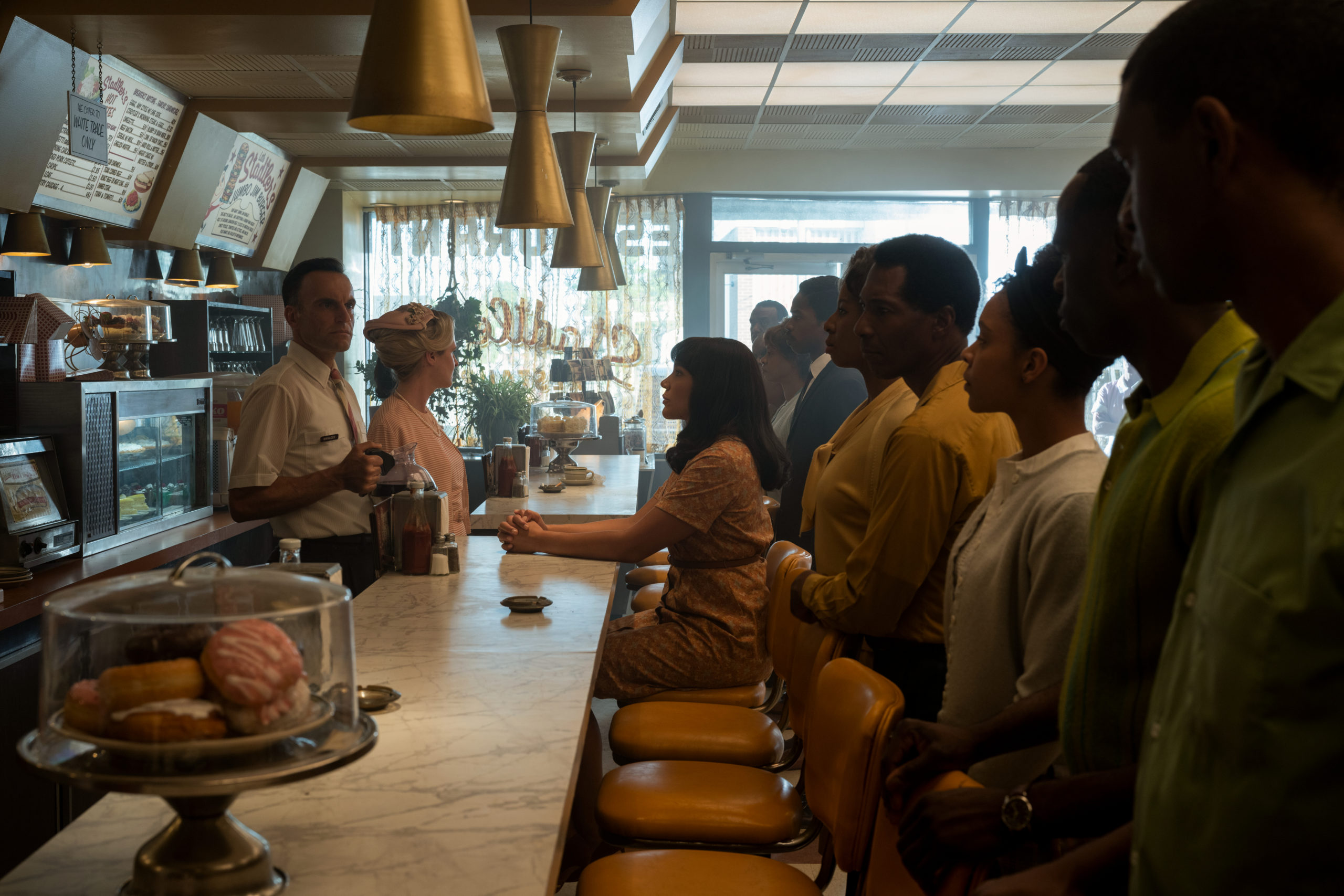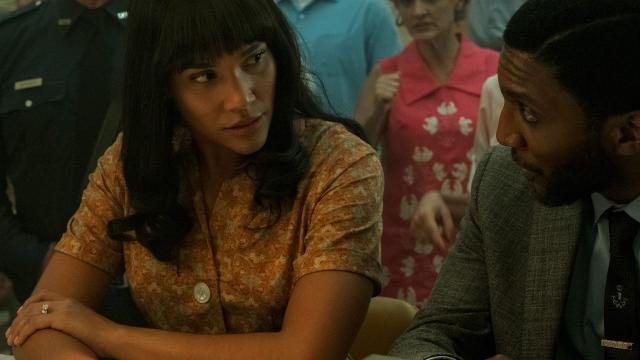By centring a plot in which its main characters are transported into the past, Netflix’s The Umbrella Academy is joining the ranks of other sci-fi series where Black characters are forced to deal with the overt, public examples of anti-Black racism and violence that define both America’s history and its present.
Even though Allison Hargreeves is arguably one of the most powerful members of the Umbrella Academy, being suddenly thrust into Dallas, Texas in the midst of the civil rights movement puts her in a uniquely complicated position that’s made all the more difficult by the brutal injury she sustained at the end of season one.
When we caught up with Emmy Raver-Lampman last year on the set of season two, she explained how the story pushes Allison to consider how her fame, her powers, and being part of the Umbrella Academy really shielded her from many of the difficult realities of being a Black woman in America.
“[The Hargreeves siblings] were going out and saving the day and it didn’t matter that there was a brother that’s Cuban, and a sister that’s Black, and another one that is Asian, and one that’s white,” Raver-Lampman said. “So like, who cares what they look like? But that’s kind of a thing that Allison’s never had to come to terms with, and I think very quickly this season she has to deal with being a woman of colour. I think her whole life it’s been celebrated, and very quickly this season it is the opposite of that.”
Because Allison and her siblings all end up at different points in time throughout the ‘60s, she quickly realises she’ll have to find a new community and family in Dallas in order to survive. When she crosses paths with Raymond Chestnut (Yusuf Gatewood), the arc of her life begins to change as he welcomes her into a local organisation fighting for civil rights in the city.

Allison’s powers of suggestion would make for an invaluable tool in her fight against bigotry in the past, but Raver-Lampman explained how in season two, she’s still grappling with the moral implications of consciously using them.
“You get older and your dreams get bigger and so I think, so did her usage of her power,” Raver-Lampman said. “I think the older that she gets, the more she realises that when she’s not using [her powers] in an actions-like scenario or fighting the bad guys — when she’s using them in her personal life — that never plays out the way I think she’s hoping that they would. Or they do in the immediate and then there’s backlash later.”
Allison’s new life as an activist only pulls her but so far away from her siblings, and it isn’t long before she ends up united with them, albeit with a new kind of dynamic. When we asked which of the other Hargreeveses Allison ends up bonding with the most this season, she detailed how it’s Klaus of all people, because, on some level, she’s still deeply invested in helping her brother heal from his share of their childhood trauma.
“I think that’s why she never truly gets annoyed with Klaus the way that she does with Diego and Five,” Raver-Lampman said. “I think [Diego and Five] feel like they kind of have a handle — if you can even say that with this family — on a little bit more of who they are as people. But Klaus, for the most part, feels to Allison to be the one that, you know, still needs guidance and still needs help because he never really got the love from their father the way that Allison and Luther did.”
Umbrella Academy hits Netflix on July 31. Keep an eye on Gizmodo for more from the cast, as well as our review of the season.
